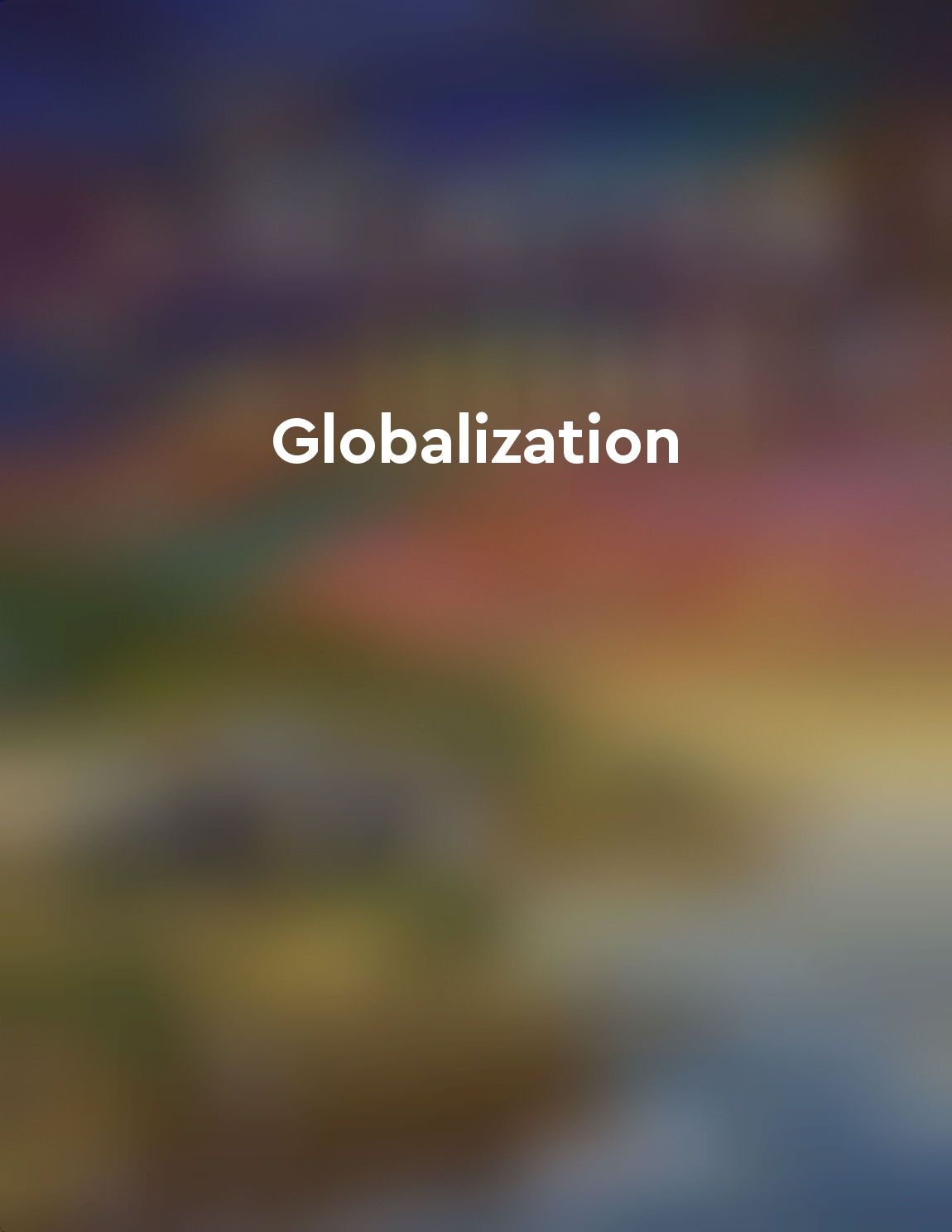Political implications from "summary" of Globalization by
The political implications of globalization are vast and far-reaching. Globalization has transformed the political landscape by connecting nations in ways that were previously unimaginable. This interconnectedness has both positive and negative consequences for the world. On one hand, globalization has led to increased international cooperation and collaboration. Nations are now more interdependent than ever before, making it essential for them to work together to address global challenges such as climate change, terrorism, and poverty. This has resulted in the formation of international organizations and agreements that aim to promote peace, security, and development on a global scale. However, globalization has also created challenges for political systems around the world. The increased flow of goods, capital, and ideas across borders has made it difficult for governments to control their economies and maintain social stability. This has led to rising inequality within and between countries, as well as a backlash against globalization in the form of populism and nationalism. Moreover, globalization has shifted power dynamics on the global stage. While some countries have benefited from increased trade and investment, others have struggled to compete in the global economy. This has led to tensions between nations, as well as competition for resources and influence in international institutions.- The political implications of globalization are complex and multifaceted. It is clear that globalization has had a profound impact on the way nations interact with each other and govern their own affairs. As the world becomes increasingly interconnected, it is essential for political leaders to adapt to these changes and find ways to navigate the challenges and opportunities that globalization presents.


